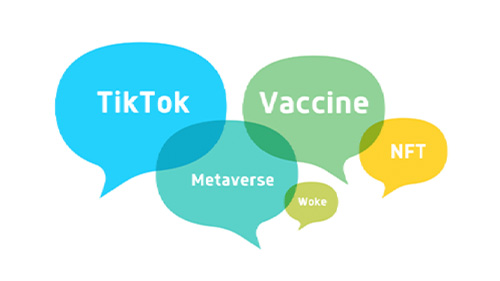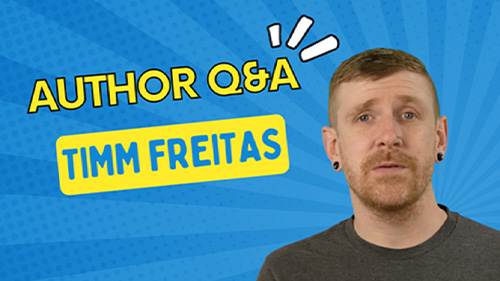My Favorite Day of the AP® Year...
The test is over! Your students feel much better and relieved now that the exam is over. Score releases are in the distant future. You feel relieved...
AP & Honors Mathematics
Explore Wiley titles to support both AP and Honors mathematics instruction.
Literacy Skills & Intensive Reading
Connections: Reading – Grades 6–12
Empower student success with a proven intensive reading program that develops strong reading skills in striving readers.
Drama, Speech & Debate
Basic Drama Projects 10th Edition
Build students’ confidence and competence with comprehensive, project-based theatre instruction.
Literature
Connections: Literature
Support learners as they study dynamic, relevant texts and bring the richness of diverse voices to students through literature.
Literature & Thought
Develop critical thinking, reading, and writing across literacy themes, genres, historical eras, and current events.
Language Arts
Vocabu-Lit® – Grades 6–12
Help students build word power using high-quality contemporary and classic literature, nonfiction, essays, and more.
Connections: Writing & Language
Help students develop grammar, usage, mechanics, vocabulary, spelling, and writing and editing skills.
Reading/English Language Arts
Measuring Up to the English Language Arts Standards
Incorporate standards-driven teaching strategies to complement your ELA curriculum.
English Language Learners
Measuring Up for English Language Learners
Incorporate research-based best practices for ELLs with an approach that includes a focus on language acquisition strategies.
Mathematics
Measuring Up to the Mathematics Standards
Incorporate standards-driven teaching strategies to complement your mathematics curriculum.
Foundations
Measuring Up Foundations
Help students master foundational math skills that are critical for students to find academic success.
Science
Measuring Up to the Next Generation Science Standards
Give students comprehensive NGSS coverage while targeting instruction and providing rigorous standards practice.
Assessment
Measuring Up Live
Deliver innovative assessment and practice technology designed to offer data-driven instructional support.
For a better website experience, please confirm you are in:

It's almost the end of the school year! With the exam behind you and your students, take a moment in class to reflect on this past year (while giving them a final lesson in AP® Lang). The work on this reflection will start by studying, evaluating, and analyzing words and phrases that mainstream media says define our cultural and historical contexts in 2021–2022. Students will consider words denotatively and connotatively; they will consider the trends that define our cultural and historical context; and they will make an observation (a universal truth) about how people interact with this context, and account for why patterns and trends likely change.
After evaluating the “situation” surrounding the words and phrases, students will situate themselves into this context by considering connection, or lack of connection, to these terms that define our time before deciding on their own word on which to focus for the upcoming year.
This lesson is meant to hone students’ understanding of the methods of development, specifically definition, strategic rhetorical choices, denotation versus connotation, as well as the influence of the rhetorical situation that surrounds a work (or, in this case, a word or phrase) is presented. Use this lesson now, at the end of the academic school year, or in December at the end of the calendar year!
Essential Knowledge
RHS-1.A: The rhetorical situation of a text collectively refers to the exigence, purpose, audience, context, and message.
REO-1.G: Methods of development are common approaches writers frequently use to develop and organize the reasoning of their arguments. A method of development provides an audience with the means to trace a writer’s reasoning in an argument.
REO-1.J: When developing ideas through narration, writers offer details about real-life experiences and offer reflections and insights on the significance of those experiences.
REO-1.L: When developing ideas through a definition or description, writers relate the characteristics, features, or sensory details of an object or idea, sometimes using examples or illustrations.
STL-1.B: Descriptive words, such as adjectives and adverbs, not only qualify or modify the things they describe but also convey a perspective toward those things.
Have students collaborate to come up with their own words of the year by downloading the activity below!
Lauren Peterson (Master of Arts, Education) has been teaching AP® English Language and Composition in a number of states for more than ten years, most recently at Highlands High School in Fort Thomas, Kentucky, where she is also the schoolwide literacy leader. Before this position, Lauren served as a curriculum and instructional coach in Duval County, Florida. Lauren worked for College Board on a pilot curriculum designed to both remediate common AP® English Language challenges and also prepare students for Microsoft Office Specialist Certification. As an independent consultant for the National Math and Science Initiative, Lauren has written diverse curricula used by students across the country as well as training materials for beginning and experienced AP® English Language teachers. Lauren served as an AP® English Language Reader and continues to work as an AP® English Language trainer for new and experienced teachers.

The test is over! Your students feel much better and relieved now that the exam is over. Score releases are in the distant future. You feel relieved...

It’s December. You’re tired. You are fairly certain that you cannot lead another discussion about—or design another activity around—something like...

Congratulations—or maybe condolences? You just found out you are teaching an Advanced Placement® (AP) English class next year. Whether it’s AP...

It’s a month before the AP exam and you’re freaking out- You're trying to think about what you need to review with your students, what you should ask...

It’s a month before the AP exam and you’re freaking out. You're trying to think about what you need to review with your students, what you should ask...

One of the most persistent challenges in AP® English classrooms isn’t getting students to write—it’s getting them to move beyond summary.

Rhetoric really is everything, everywhere, and all at once since every act of communication is spinning in a multiverse of contexts that all shape...

Want to learn more about author and Garden of English creator Timm Freitas? Tune into our new Author Q&A series! Learn who inspired to become a...

The concept of a "Line of Reasoning" is not unfamiliar to students, but the terminology and various approaches to developing a line of reasoning may...

Every May, AP readers hear the same refrain: “The sophistication point is a unicorn.” But that’s not quite right. Unicorns don’t exist. The...

Strong ideas matter in AP Language and Composition—but how students package those ideas often determines how clearly and persuasively they come...

“The December spiral … prevents us from seeing the slow, meaningful gains our students are actually making.”
